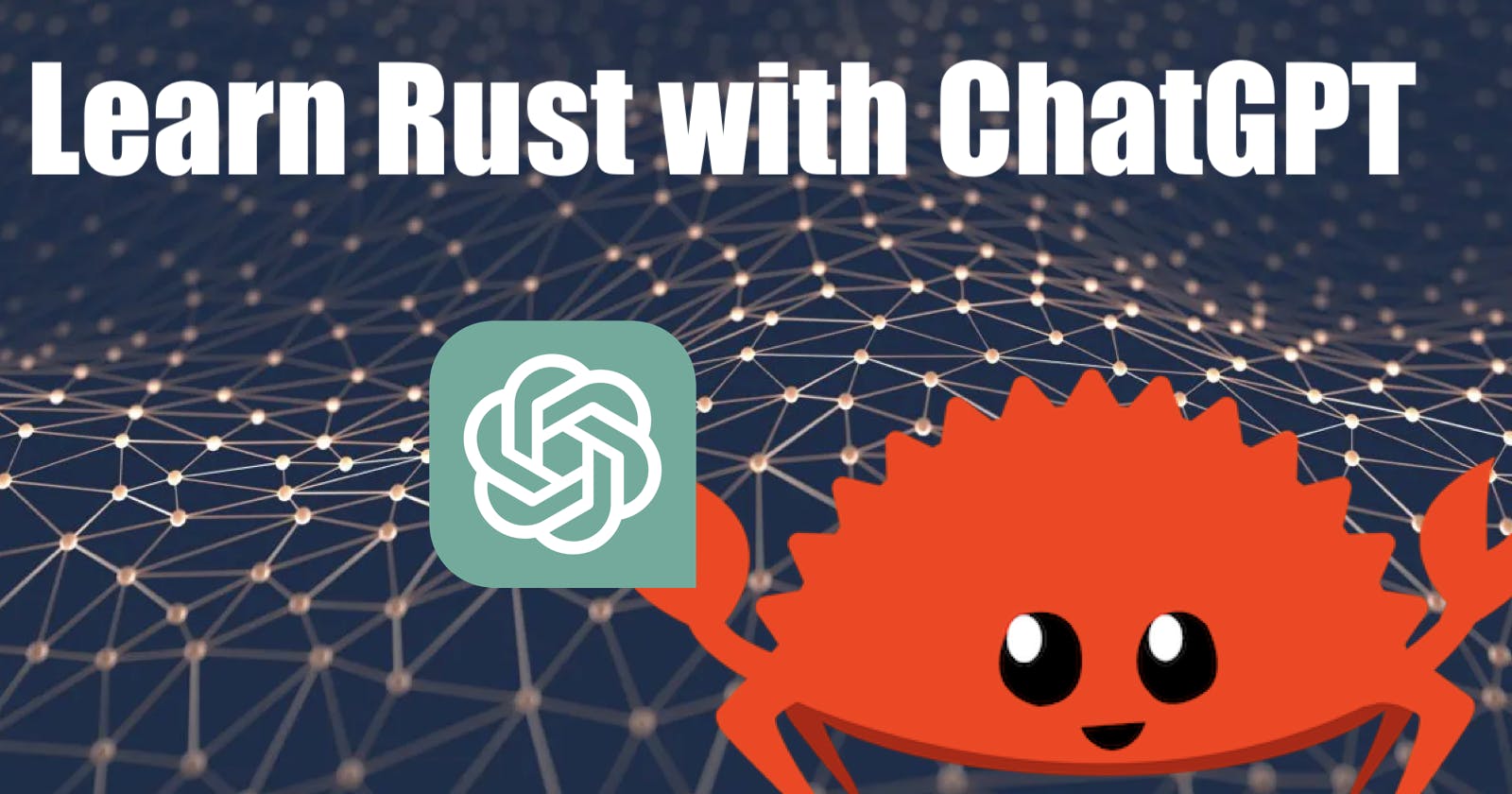Introduction
ChatGPT is a large language model developed by OpenAI based on the GPT-3.5 architecture. It is designed to generate human-like responses to text inputs, making it an ideal tool for natural language processing tasks such as language translation, text summarization, and question answering. ChatGPT has been trained on a vast amount of data, allowing it to understand and generate responses to a wide range of topics.
Getting Started
To begin using ChatGPT, you'll need an internet connection and a compatible web browser. While you don't have to install any software, additional steps like creating an account or obtaining an API key may be necessary, depending on the specific version of ChatGPT you want to access. For more information on getting started with an OpenAI-powered ChatGPT, visit their website for detailed instructions.
What is ChatGPT?
ChatGPT is an AI language model that generates human-like responses to text inputs. It uses a deep learning architecture called GPT-3.5, which has been trained on a large amount of text data. ChatGPT can understand and generate responses to a wide range of topics, making it an ideal tool for natural language processing tasks. With ChatGPT, you can have a conversation with an AI that feels like talking to a real person.
Rust
According to its official website, "Rust is a systems programming language that runs blazingly fast, prevents segfaults, and guarantees thread safety." Rust is a statically typed, compiled programming language that was designed with a focus on system-level programming, but it can also be used for web development, game development, and other application domains.
Rust's syntax is similar to that of C and C++, but it is a more modern language that provides features like memory safety, zero-cost abstractions, and guaranteed thread safety. Rust is a systems programming language that is memory-safe and thread-safe by default, making it a popular choice for building high-performance and reliable software.
Rust is a multi-paradigm language that supports both functional and imperative programming styles. It is designed to be easy to learn and use, with a clear and concise syntax that emphasizes code readability. Rust also has a growing community of developers who contribute to its ecosystem of libraries, frameworks, and tools.
Overall, Rust is a powerful and versatile programming language that is well-suited for building reliable and high-performance systems. Its emphasis on safety and concurrency make it a popular choice for developers who value those qualities in their software.
Let's get Rust-y with it!
Okay, that was a terrible joke, but don't let that discourage you from learning Rust. Rust is a seriously cool language that offers a lot of benefits over other programming languages. It may take a bit of effort to get started, but trust me, it's worth it. So let's dive in and start learning Rust!
Keep in mind that the response you receive could be completely different from the ones I got!
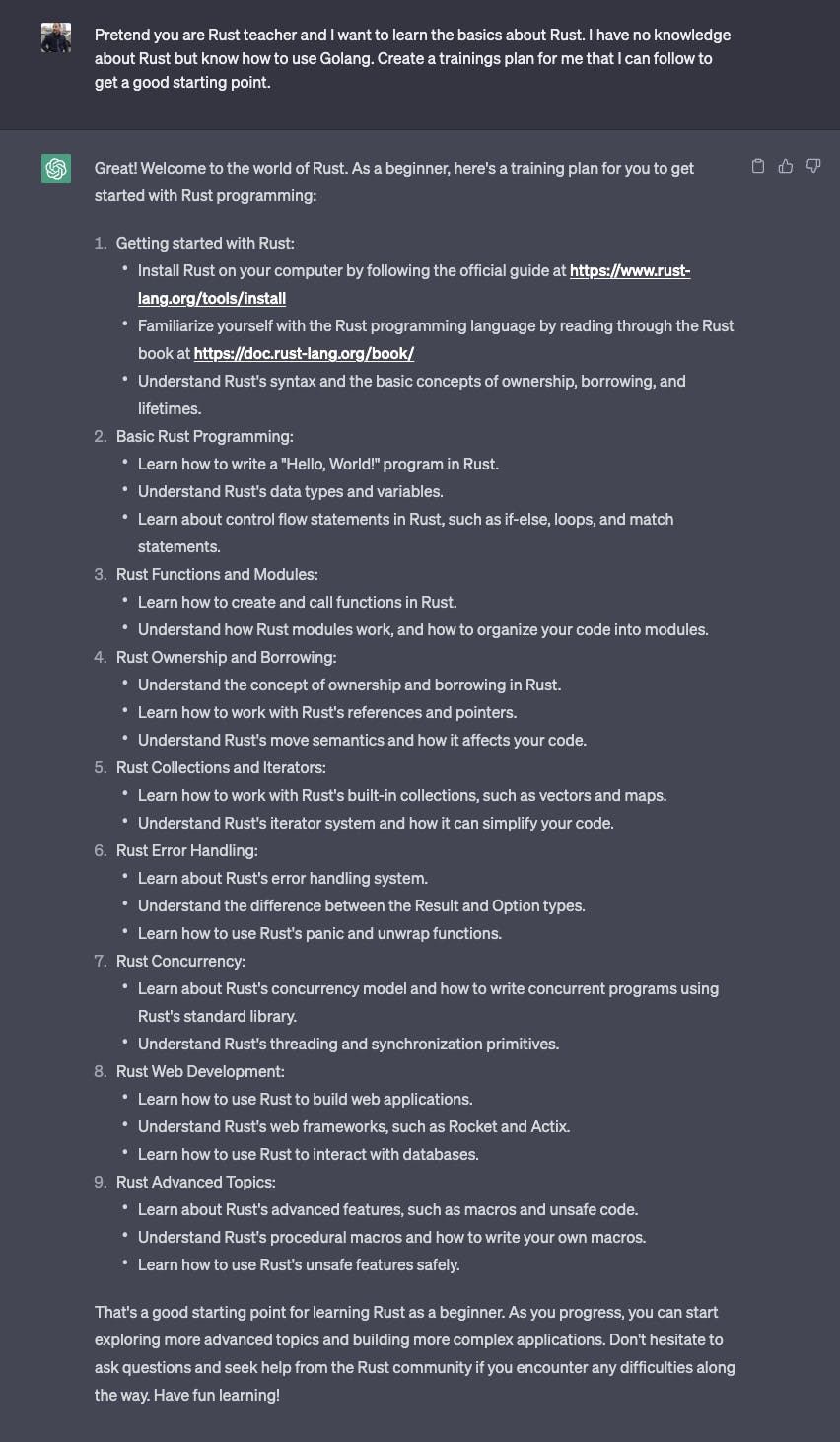
We've got a solid training plan so far. Let's ask our teacher to begin with the first chapters.
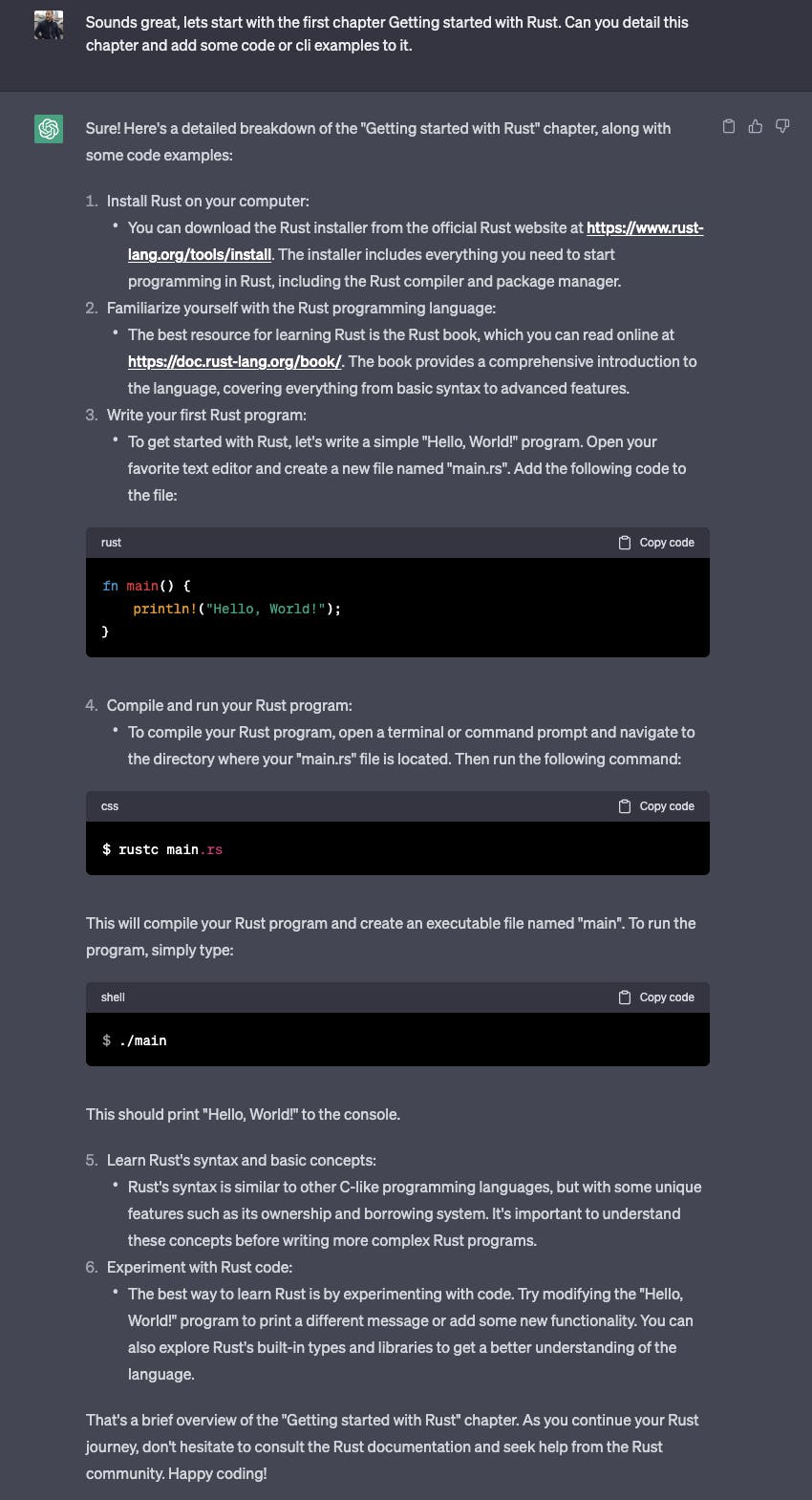
Moving on to the next chapter about Basic Rust Programming.
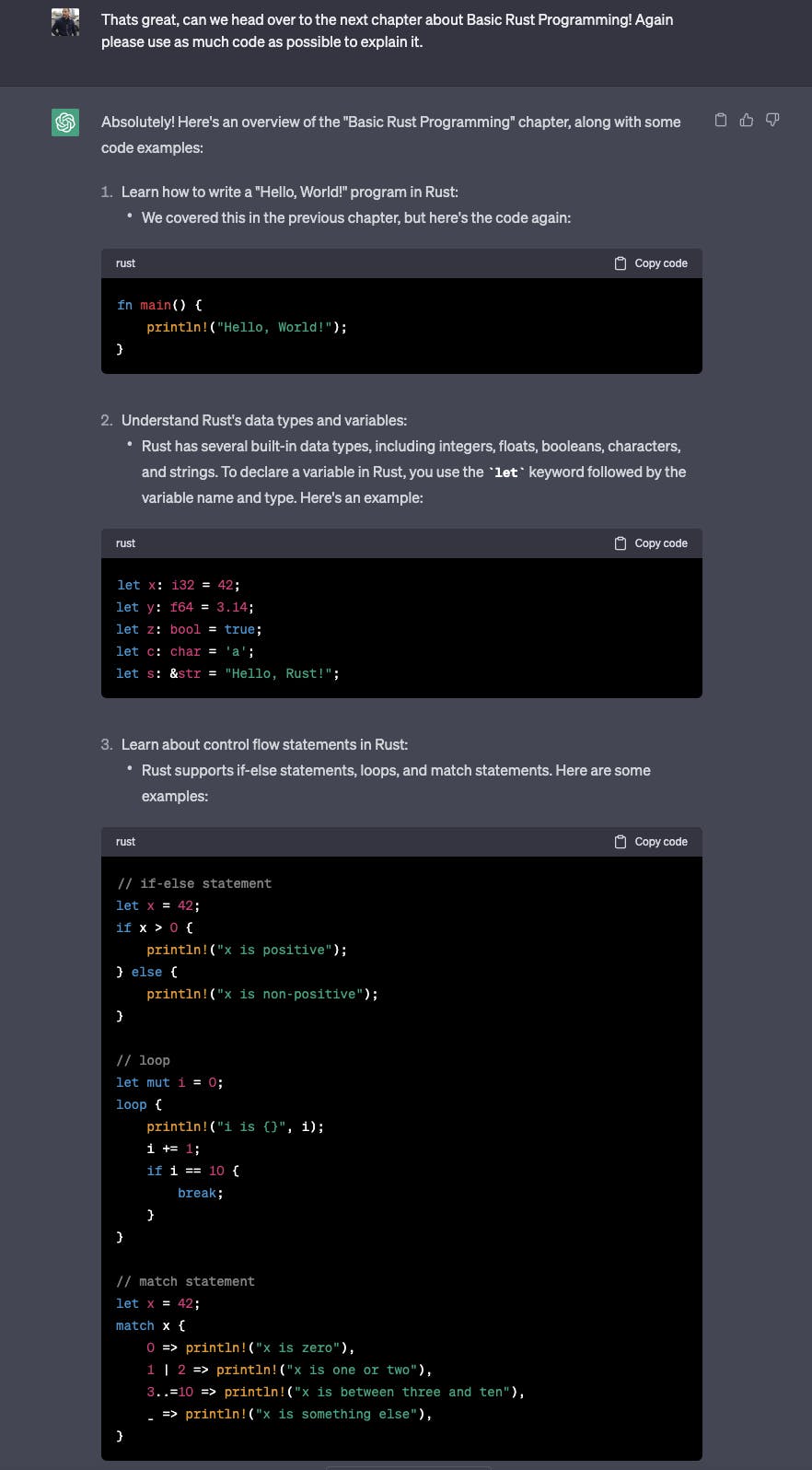
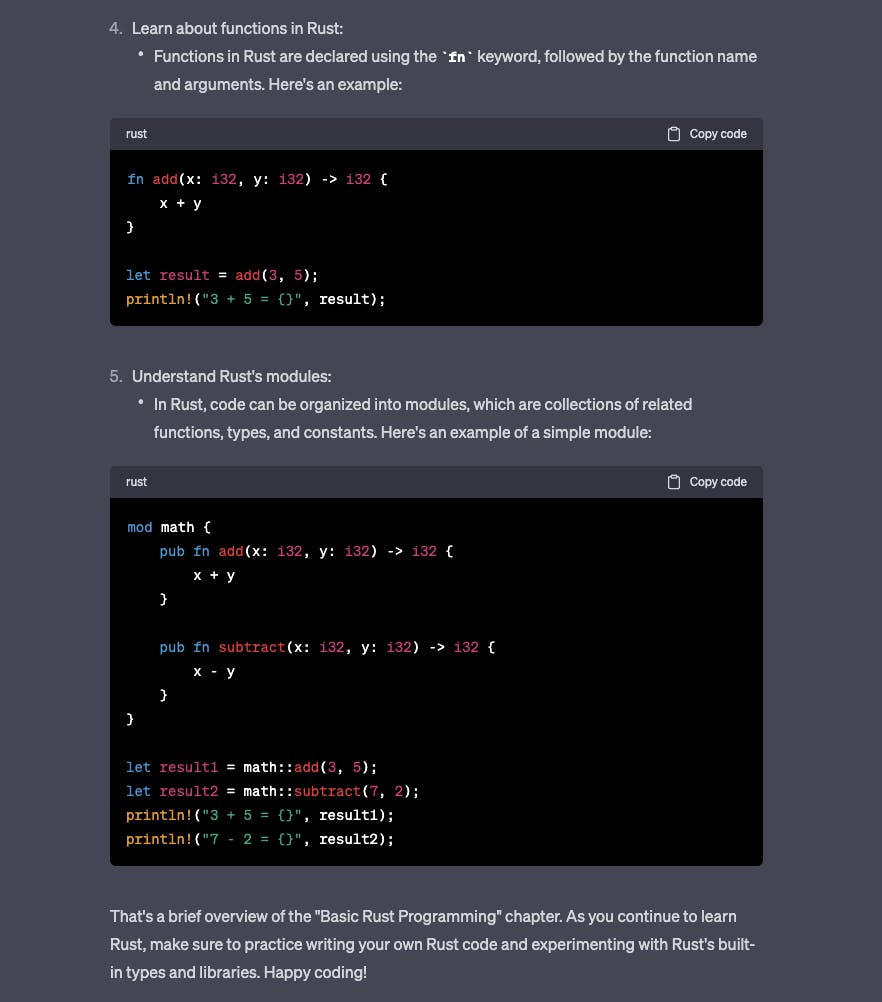
This is excellent output; we can delve deeper if necessary. Let's switch to the next topic, Rust Functions and Modules.
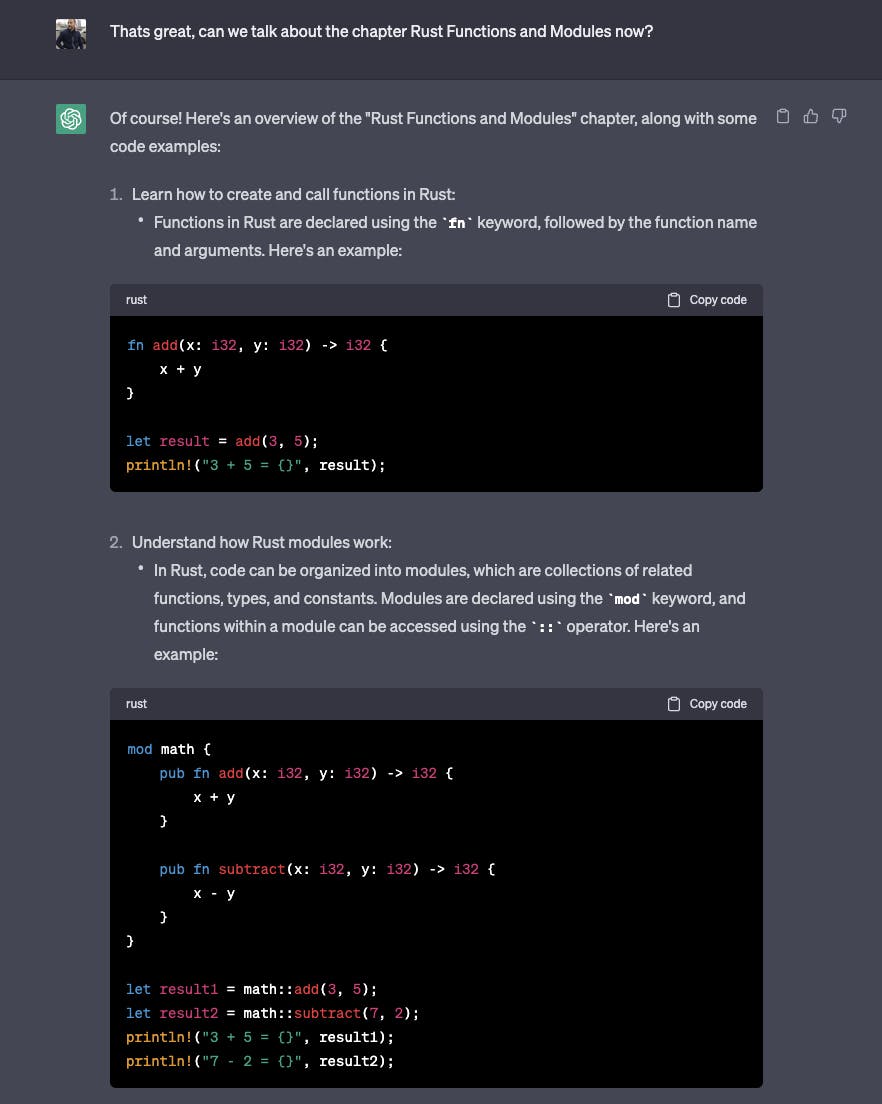
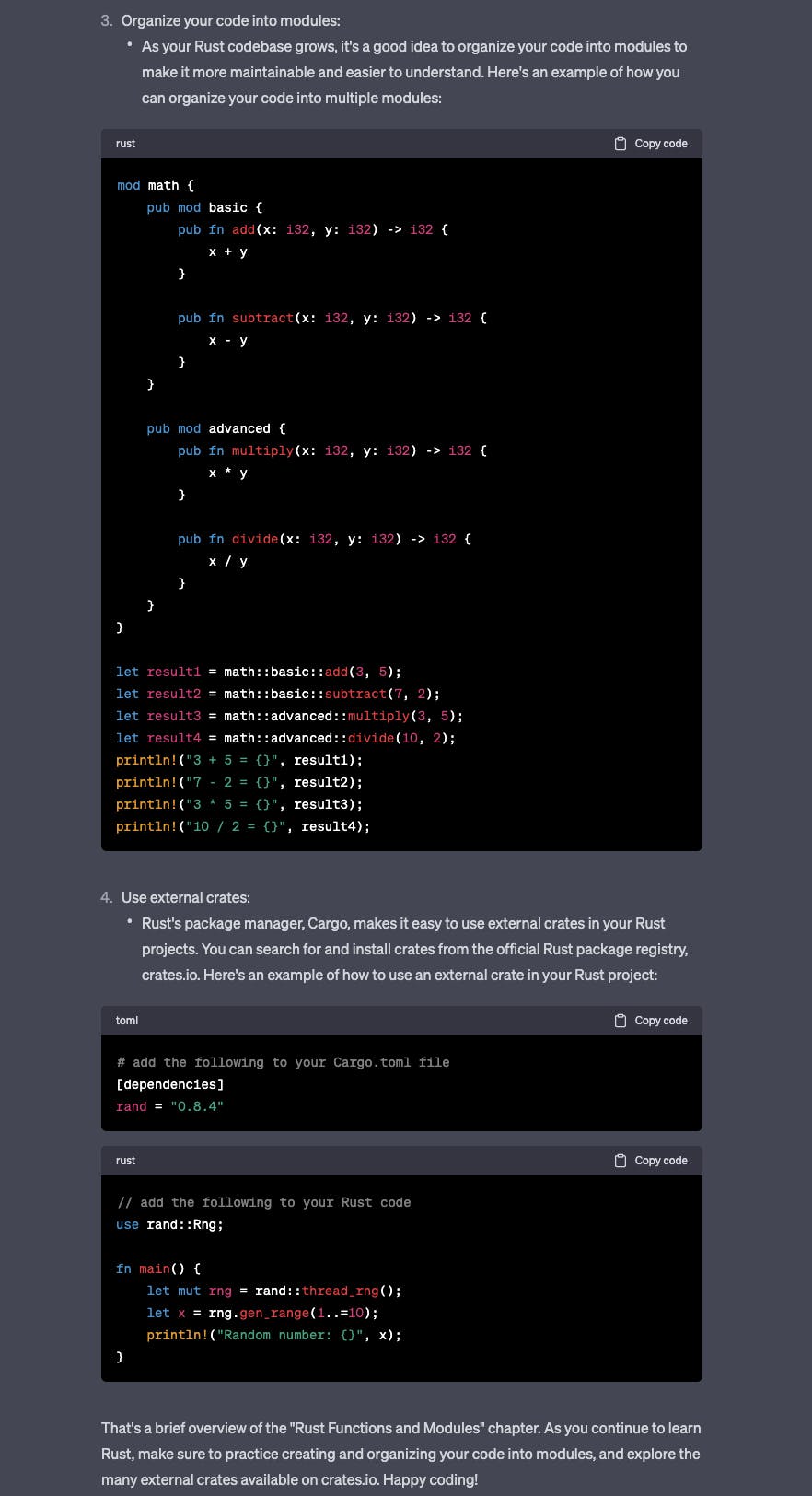
I noticed a new thing called Cargo.toml. Let's ask our teacher about it.
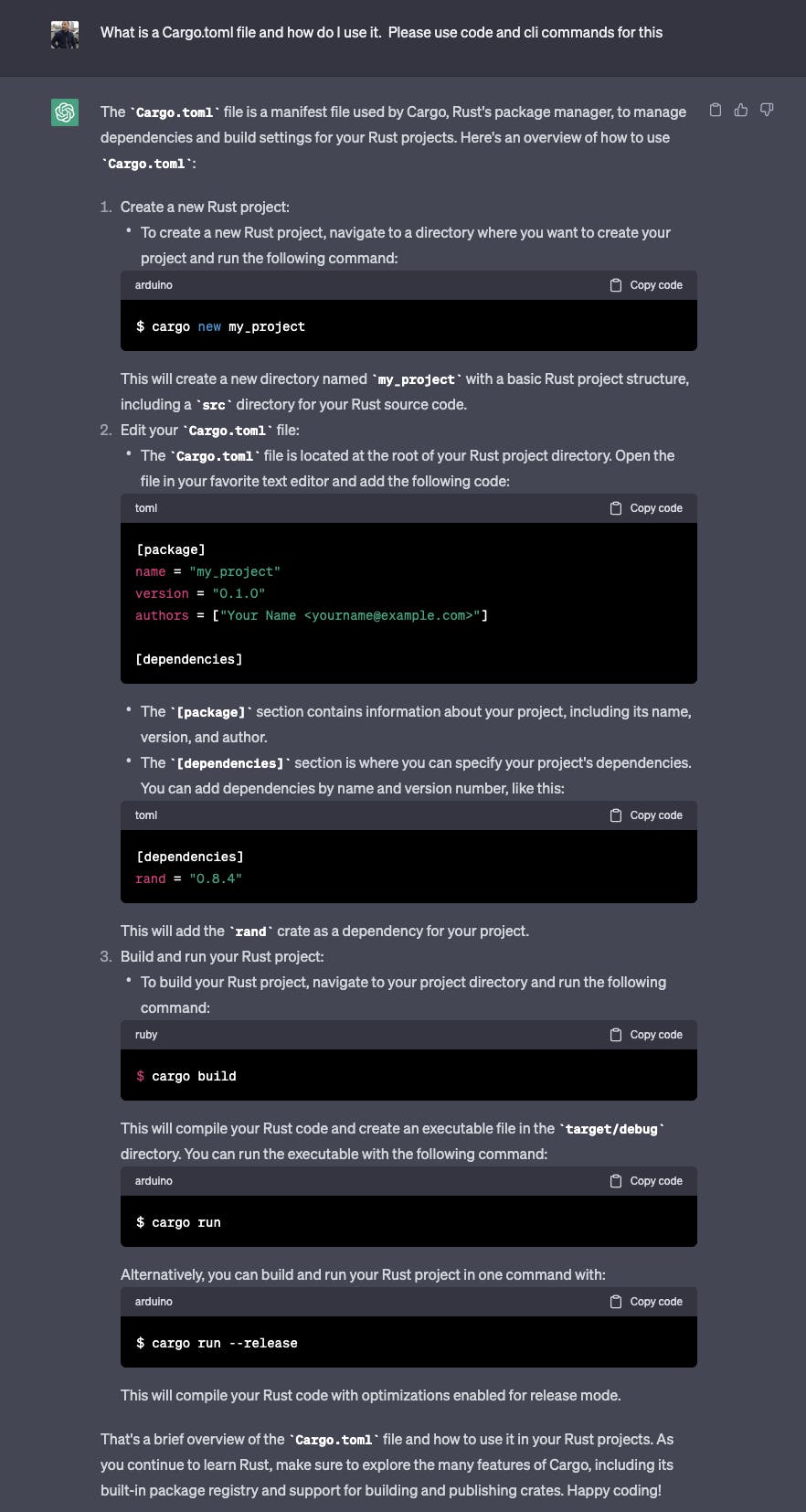
That's pretty good, to be honest. Now we're getting to the big topic, Rust Ownership and Borrowing, and I want to compare it to Go.
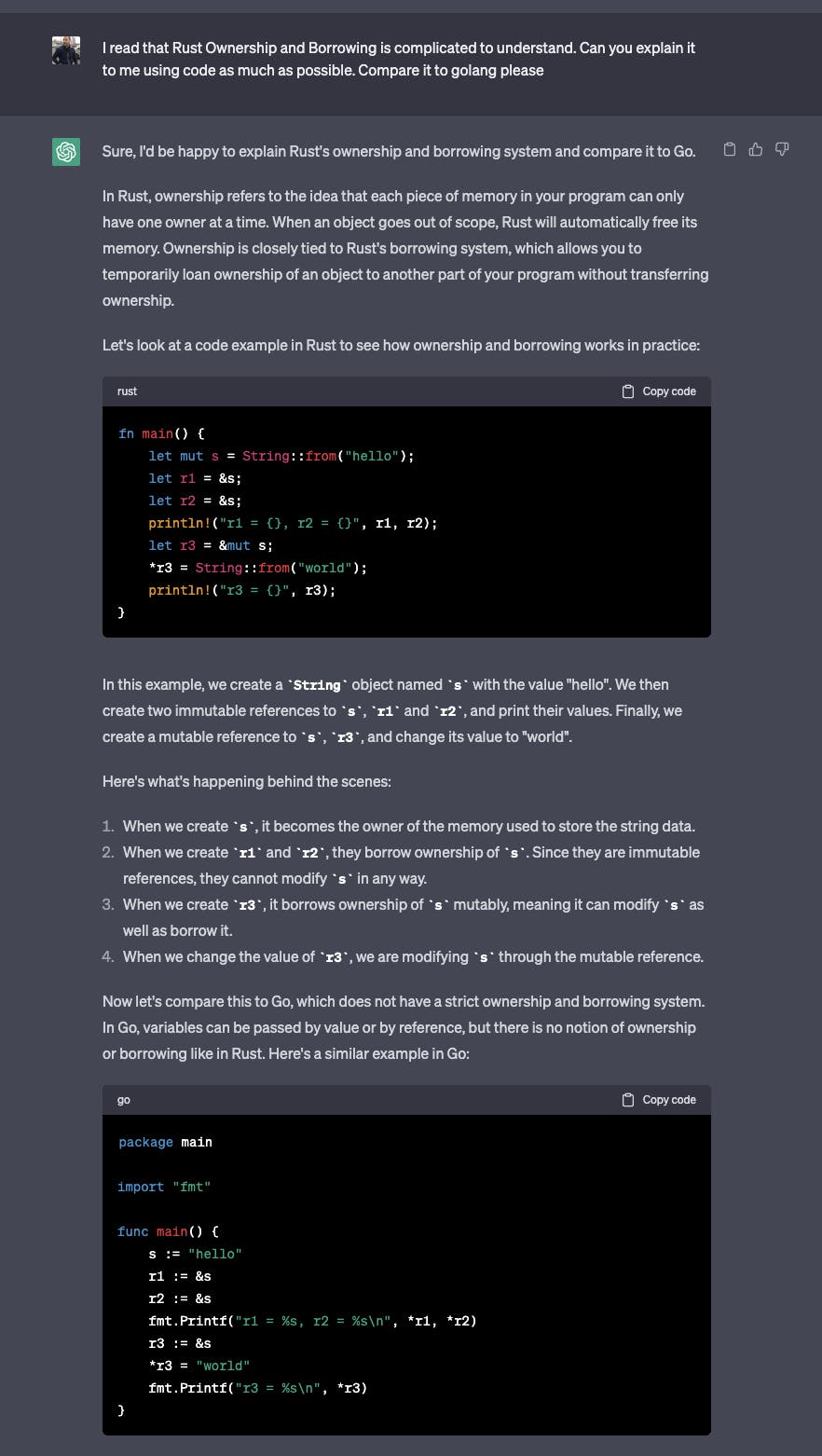
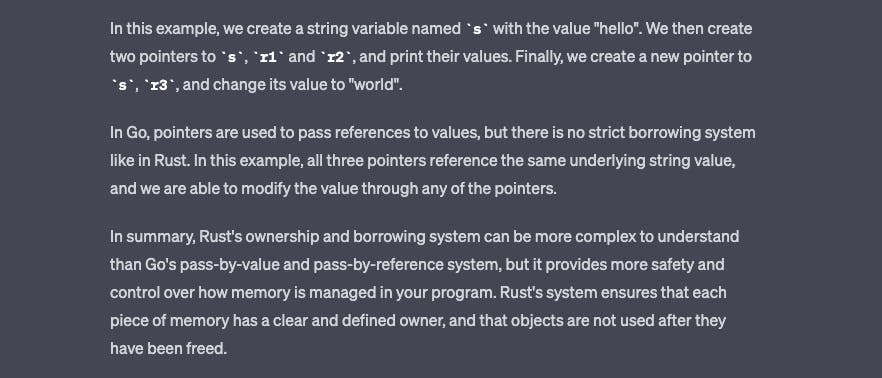
Next, I want to learn more about Rust Collections and Iterators.
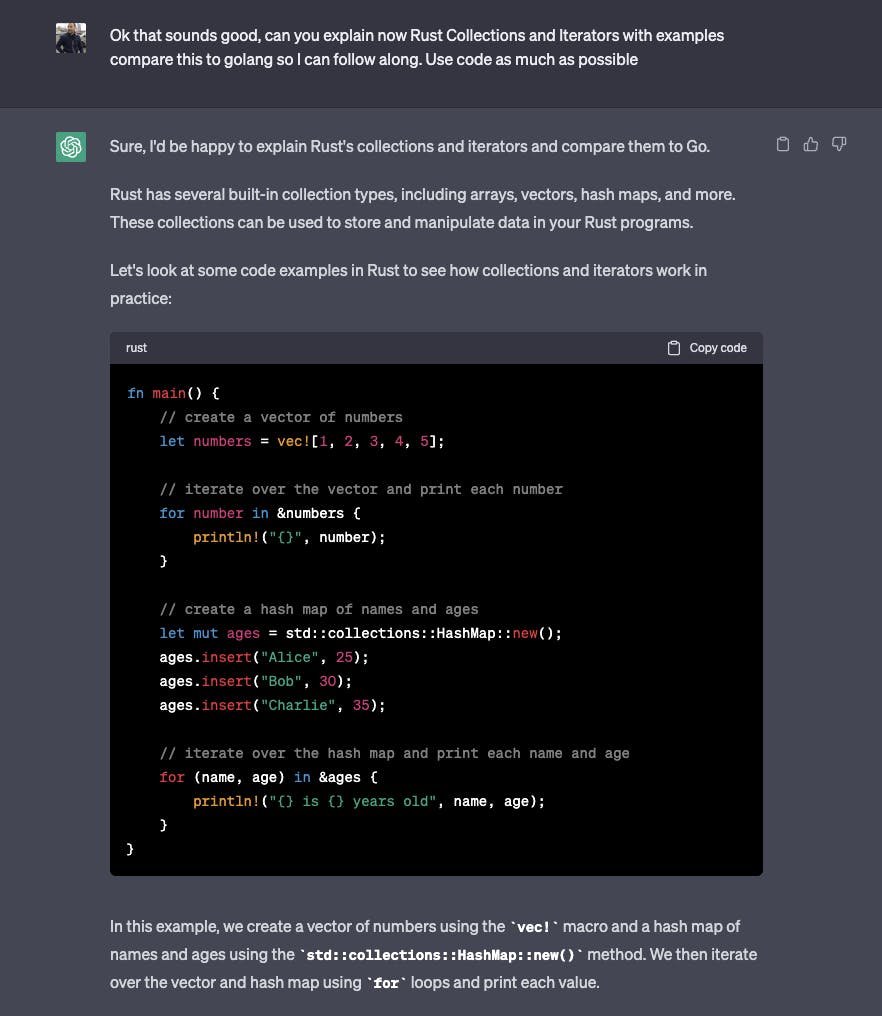
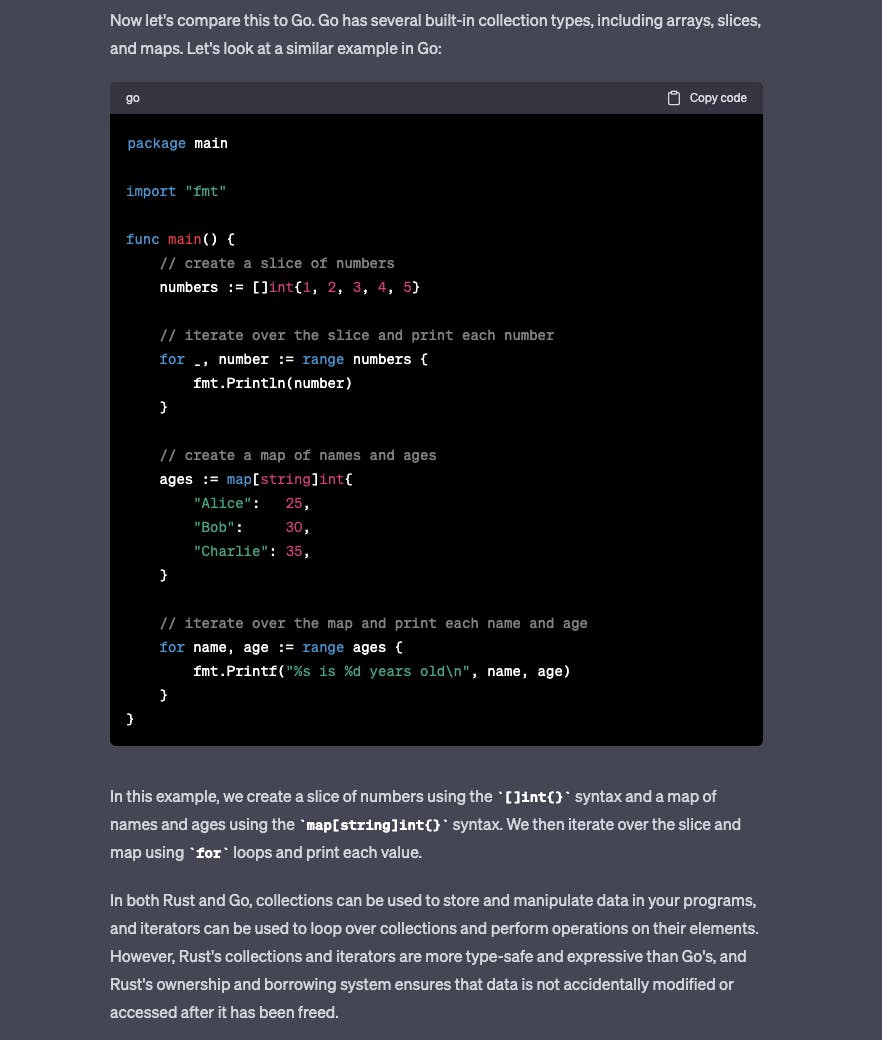
Error handling is always important in a new programming language, so let's ask our teacher about Rust Error Handling and how it compares to Golang.
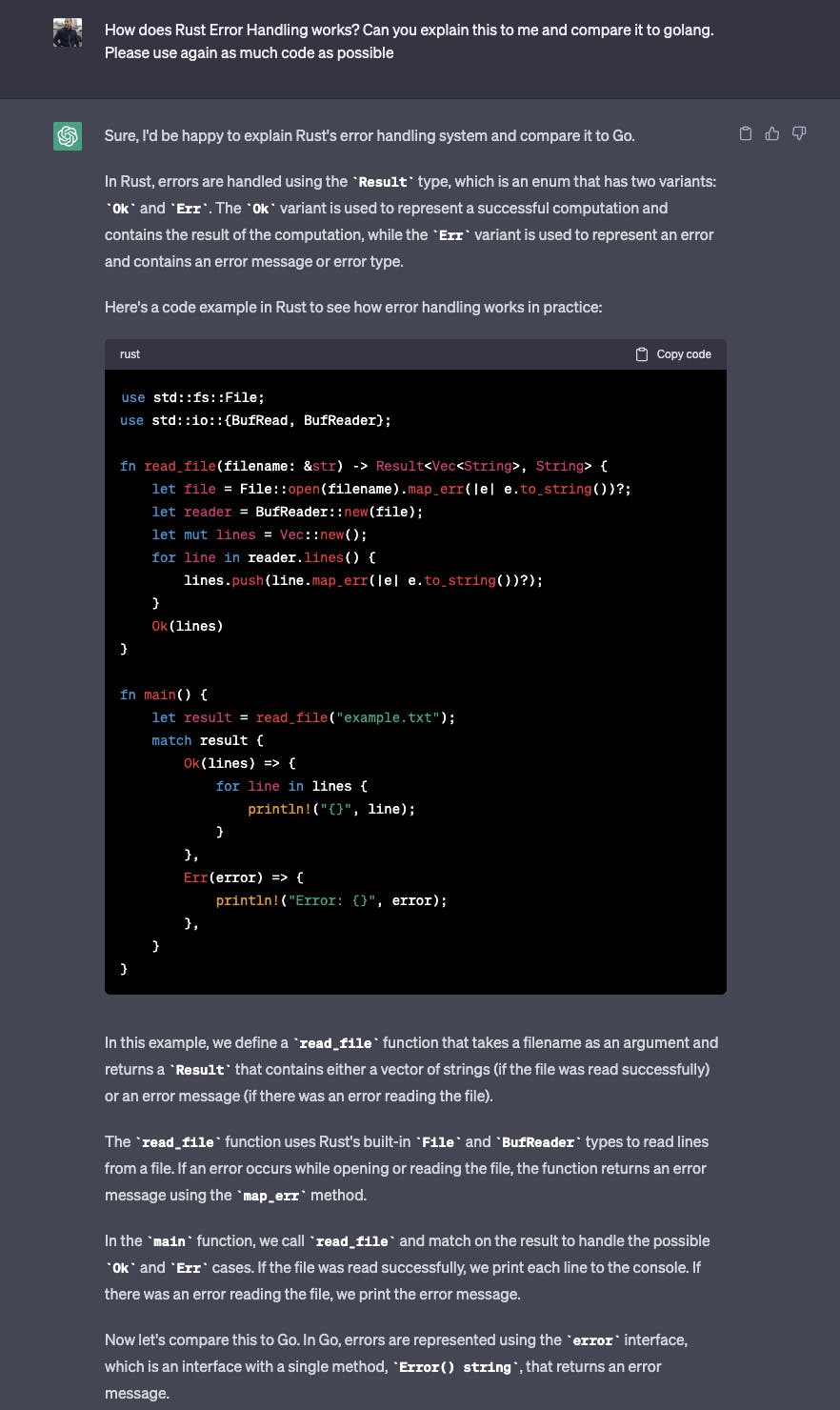
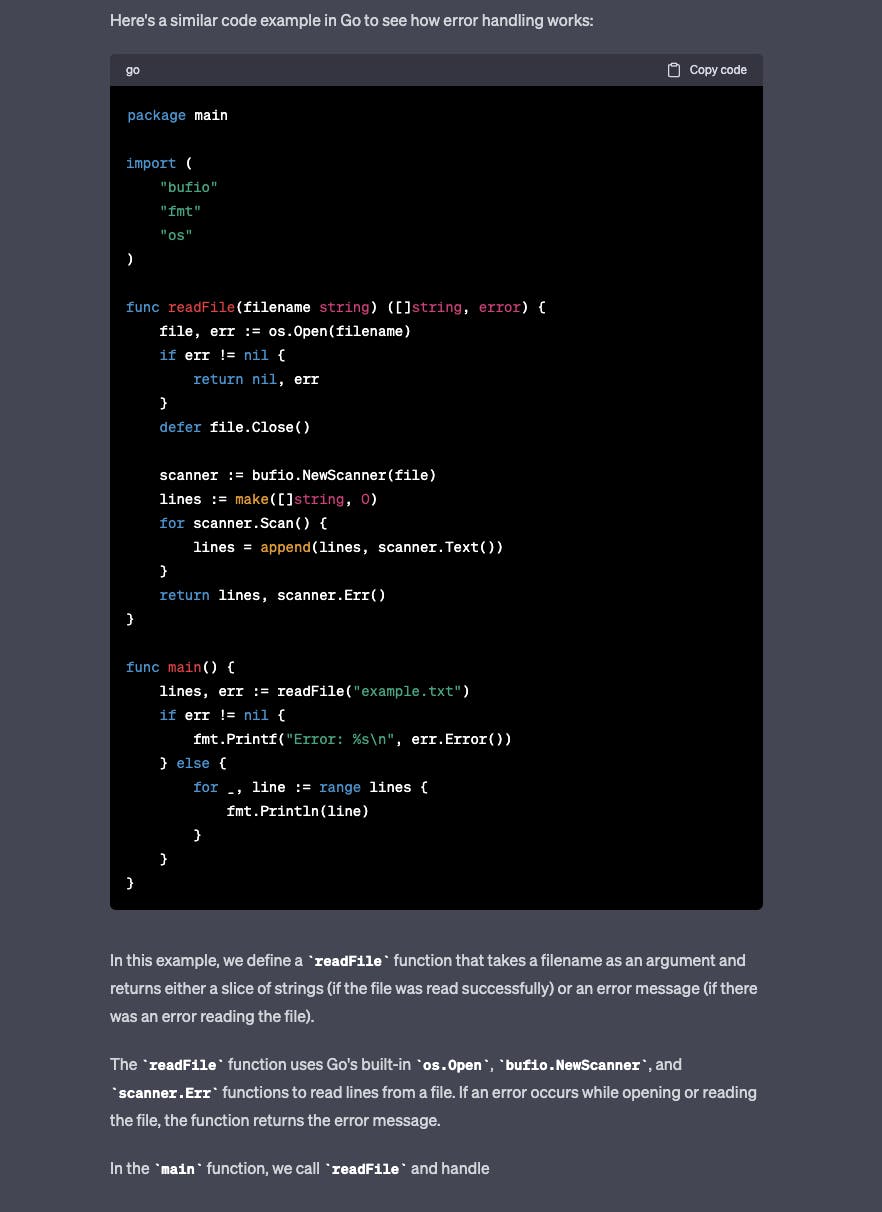
It's time to apply what we've learned so far. Let's ask our teacher to show and explain a basic CLI for calculating Fibonacci numbers.
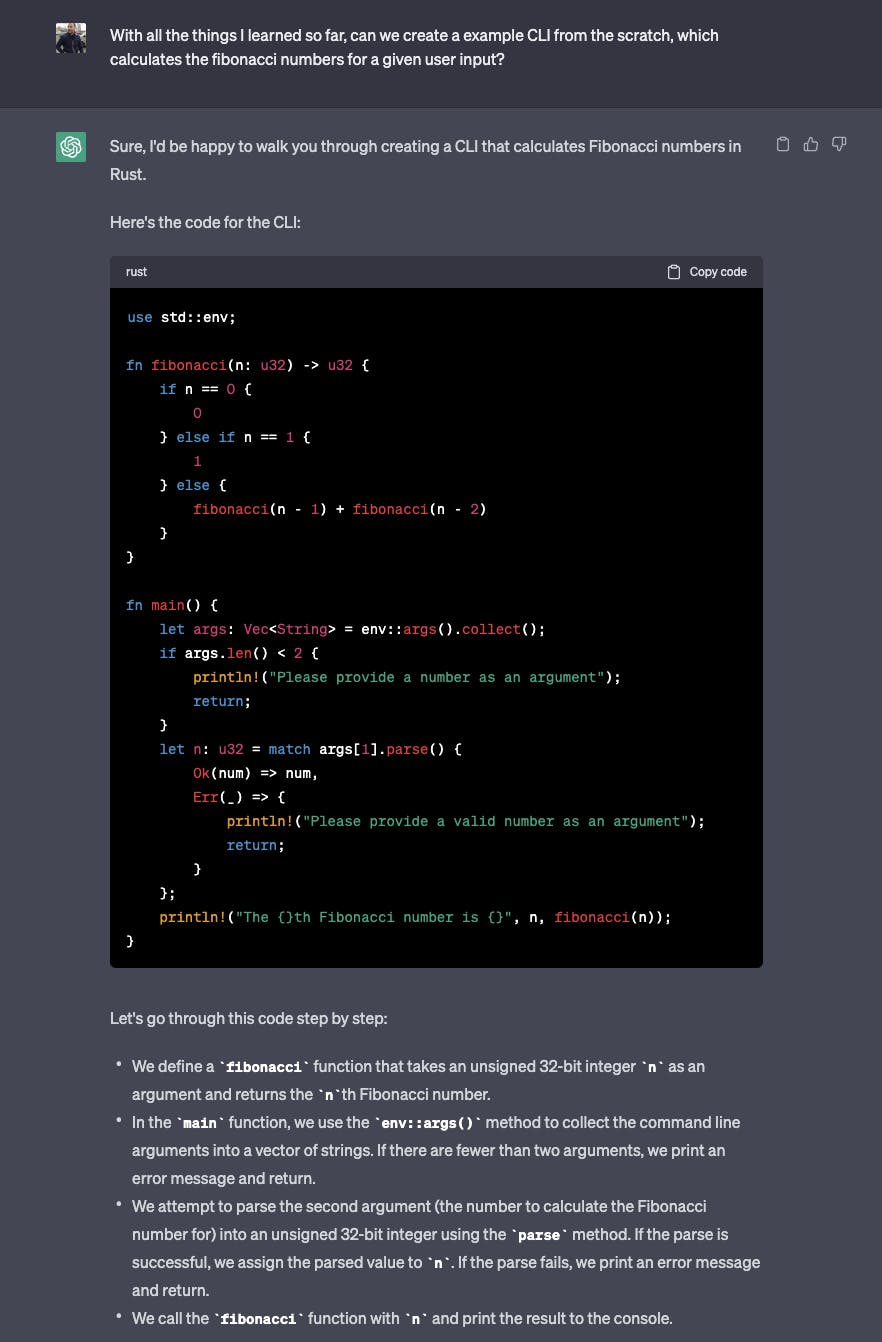
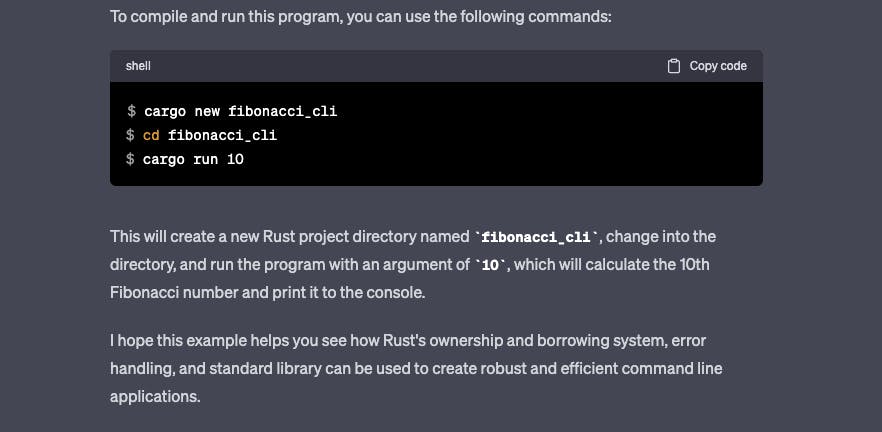
That worked very well! It's compiling and providing the numbers!
➜ cargo run 10
Compiling fibonacci_cli v0.1.0 (/Users/dirien/trash-stacks/rust/fibonacci_cli)
Finished dev [unoptimized + debuginfo] target(s) in 0.76s
Running `target/debug/fibonacci_cli 10`
The 10th Fibonacci number is 55
Let's move on to the next topic, Rust Concurrency, and compare it to Golang once again.
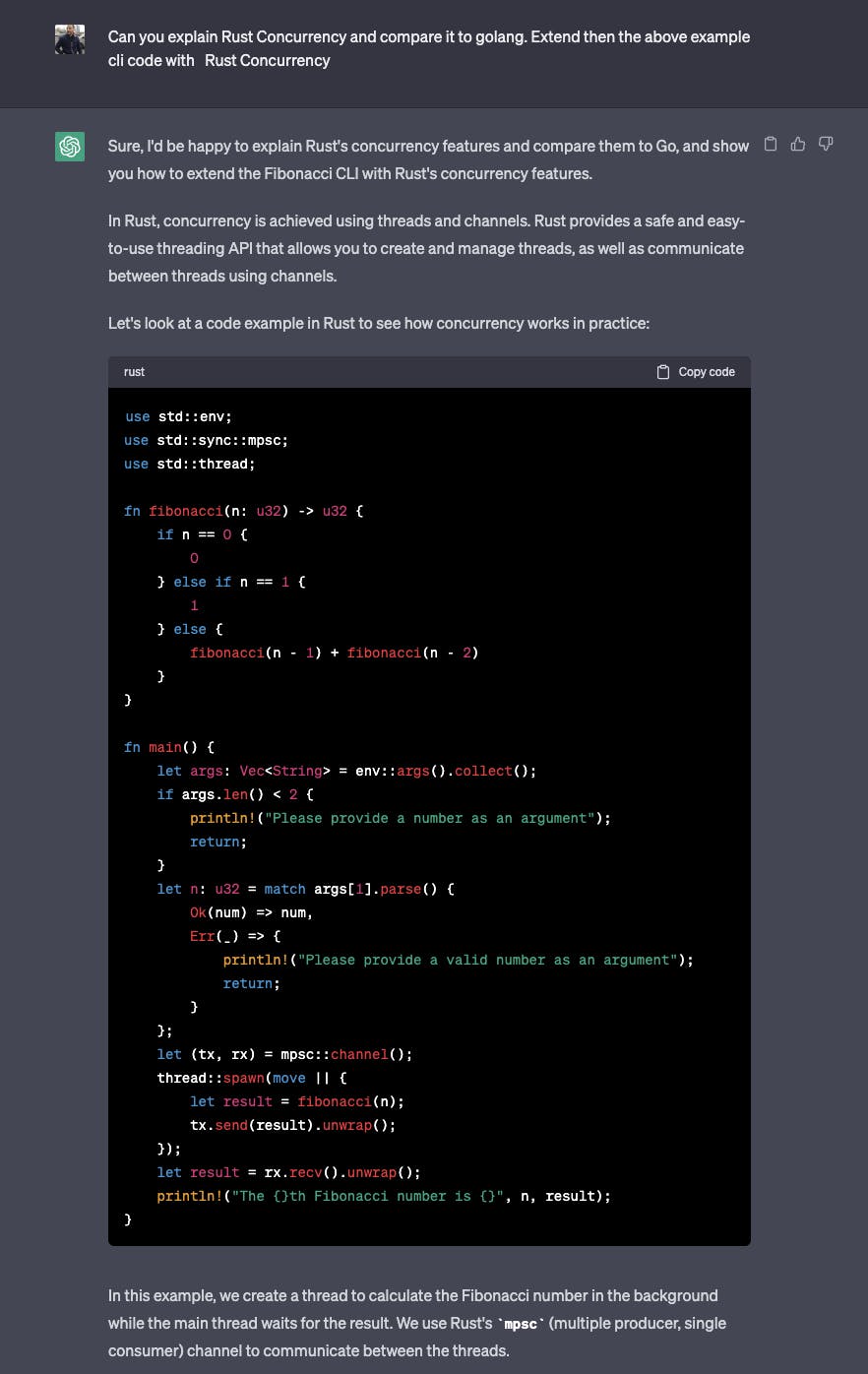
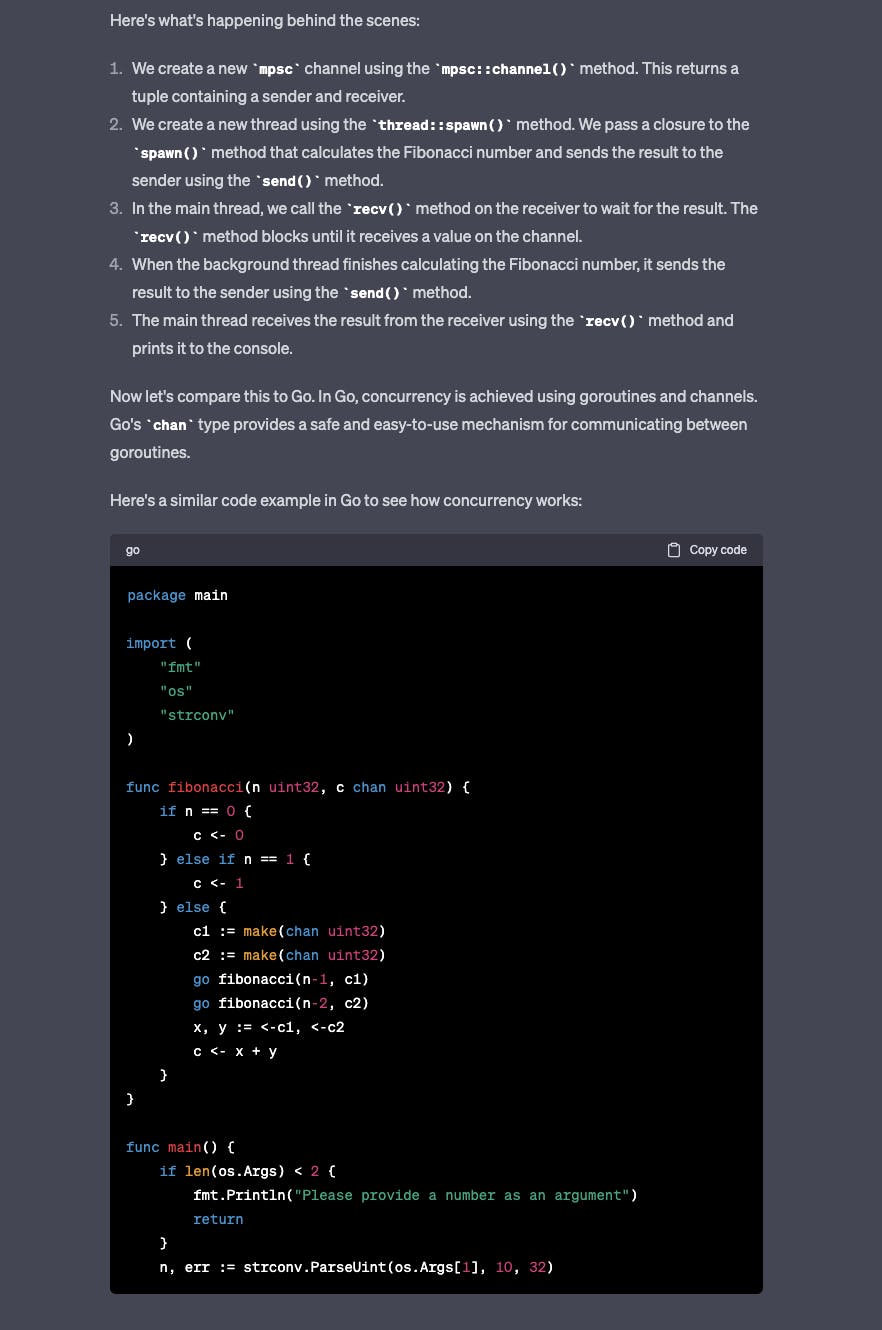
Let's ask for a working example here too:
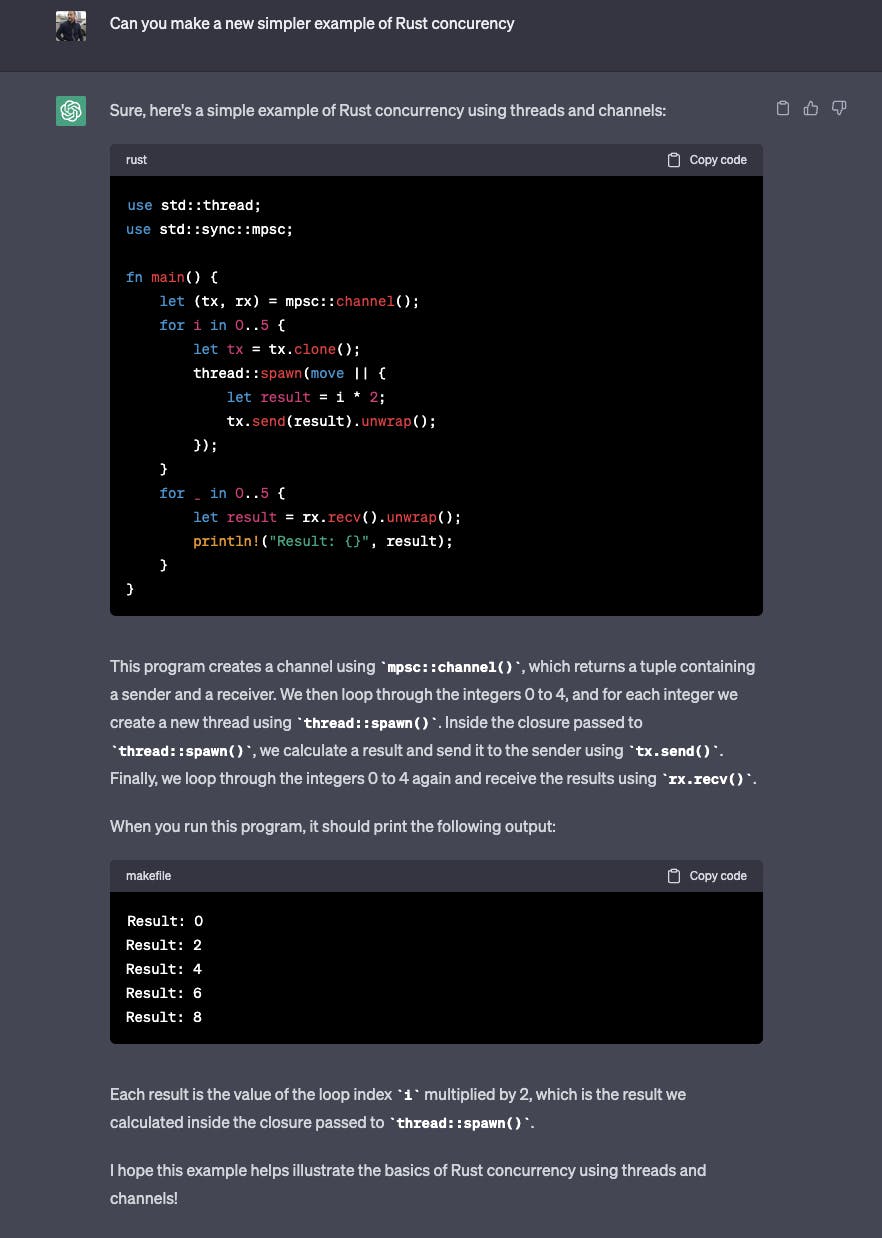
cargo run
Compiling fibonacci_cli v0.1.0 (/Users/dirien/trash-stacks/rust/cli)
Finished dev [unoptimized + debuginfo] target(s) in 0.74s
Running `target/debug/cli`
Result: 0
Result: 2
Result: 4
Result: 8
Result: 6
That's not bad. Let's see how our teacher handles the next topic about Rust Web Development.
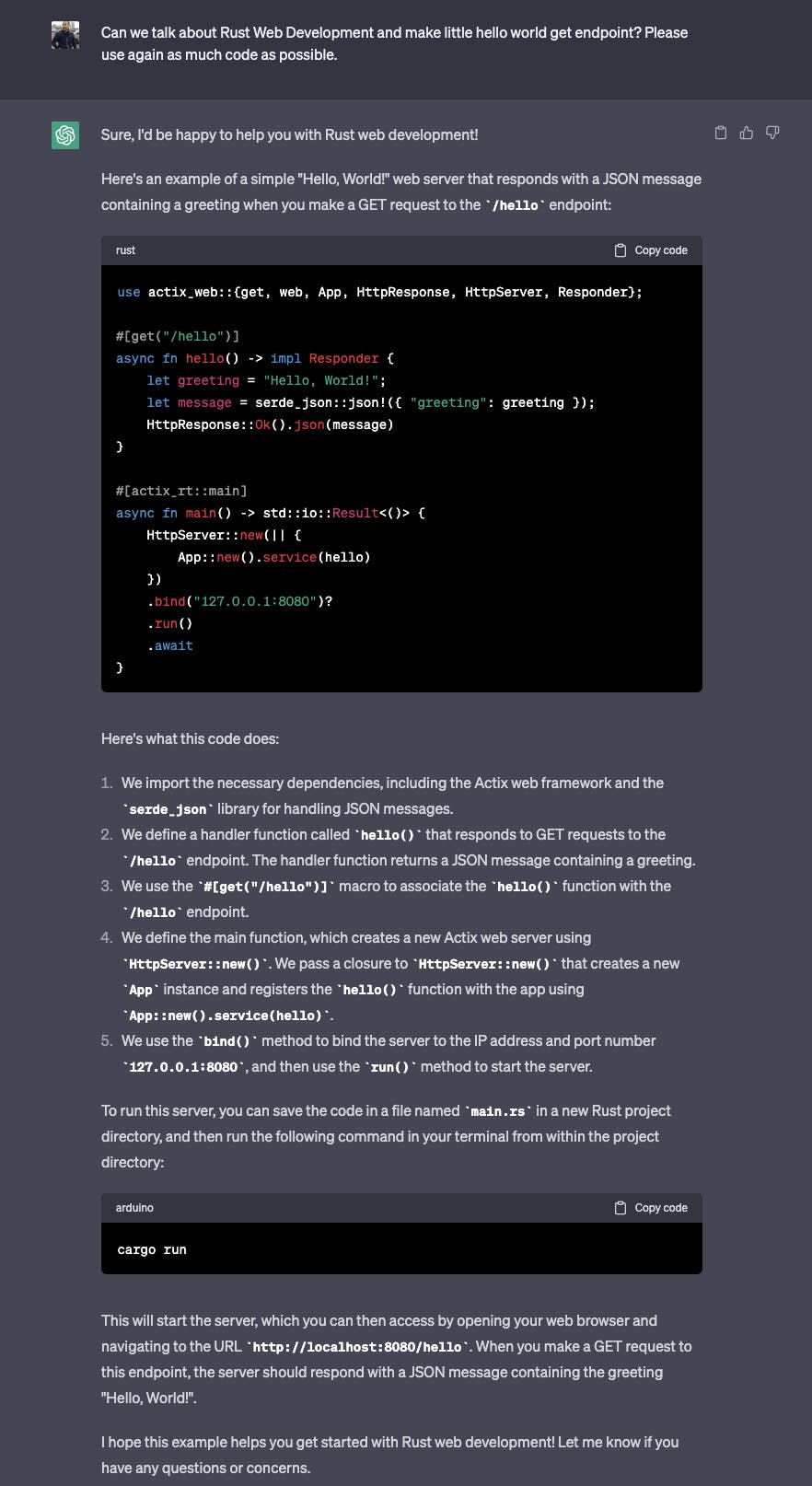
The teacher talks about dependencies! We should ask about this and how to add them to our project.
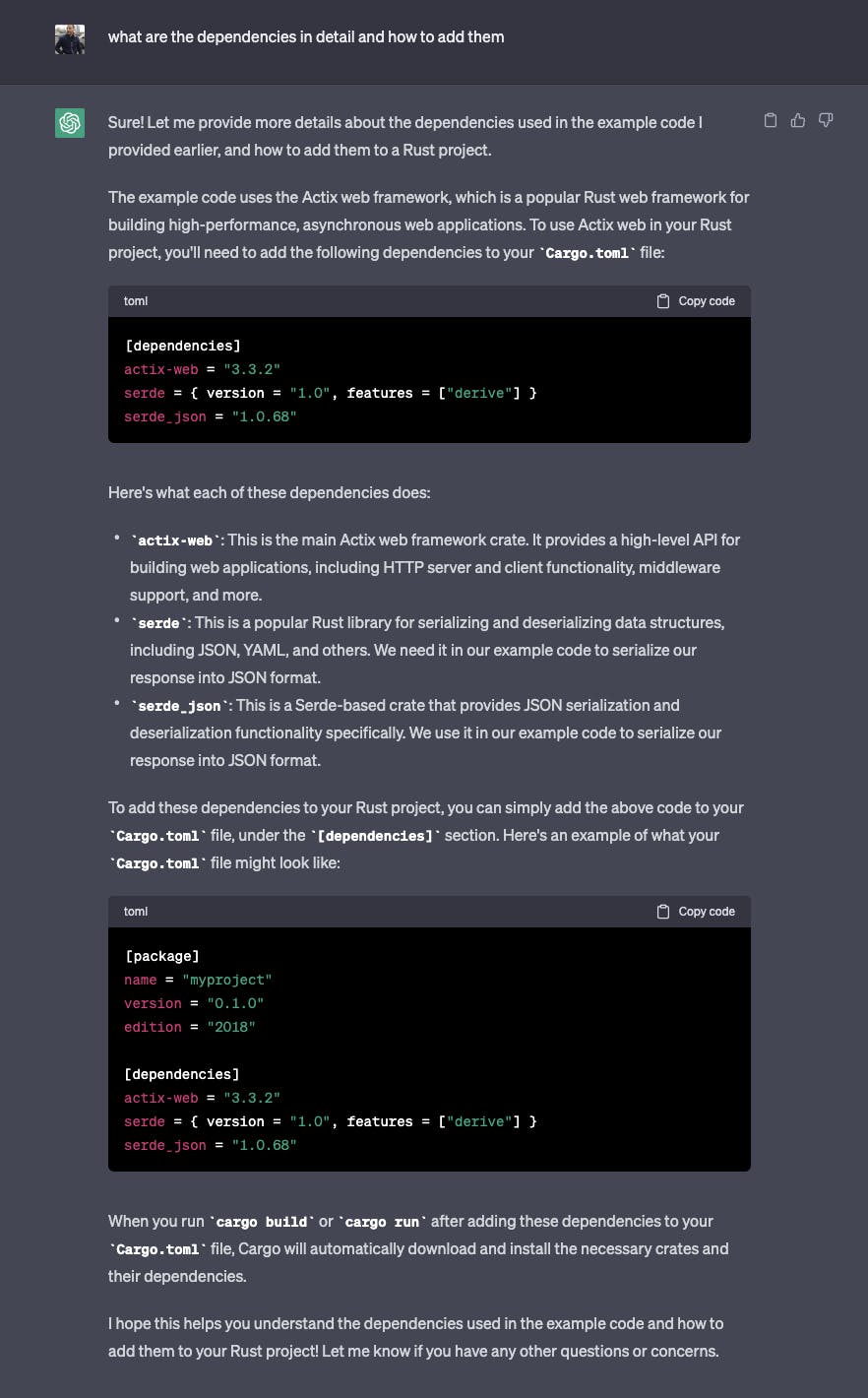
Oh, I got an error message! Let's ask the teacher for help.
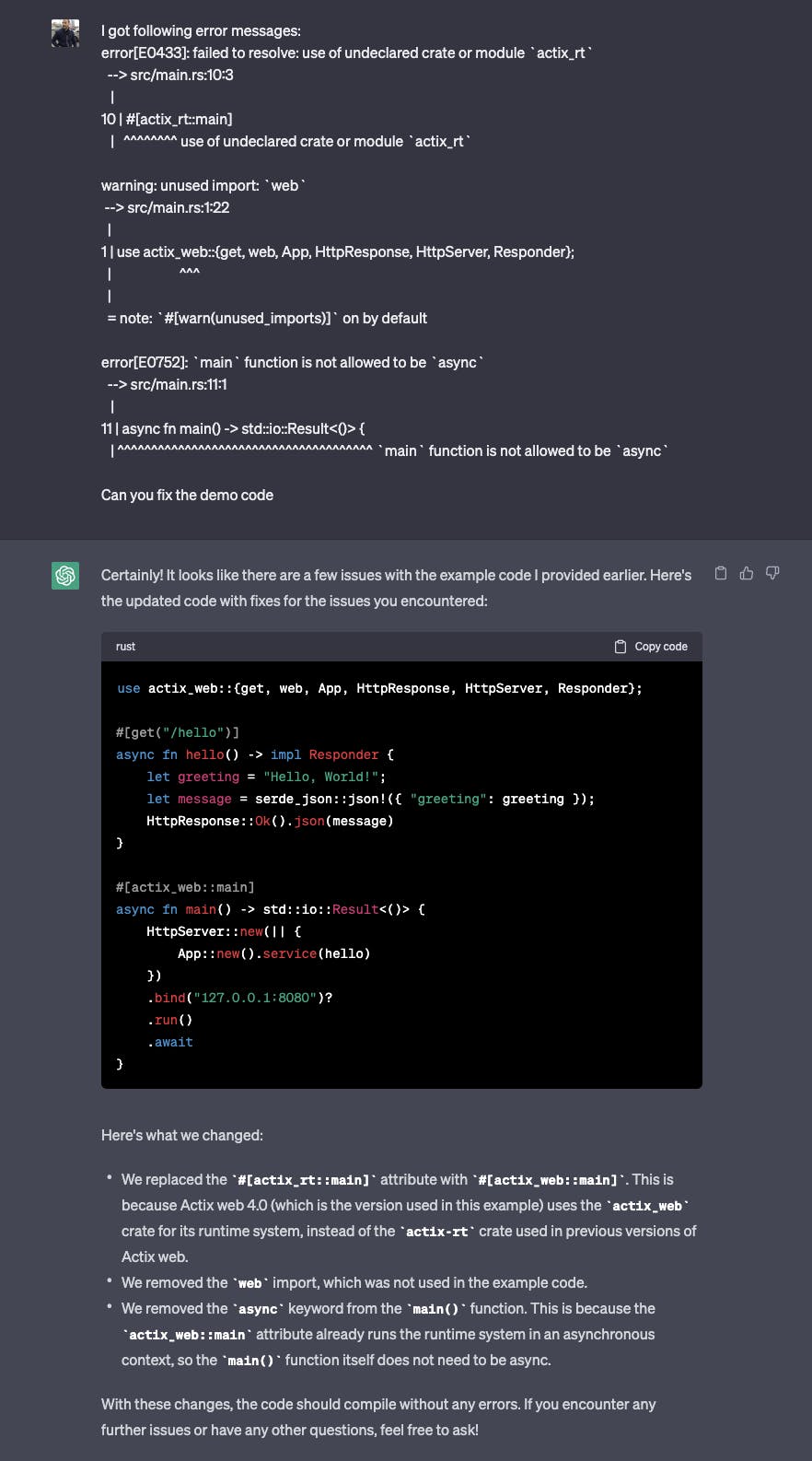
Great, this answer fixed the error messages, and the program is working fine!
curl 127.0.0.1:8080/hello
{"greeting":"Hello, World!"}%
Let's ask how we can create a second endpoint and post a JSON with our name to it! The new endpoint should then greet us with our name.
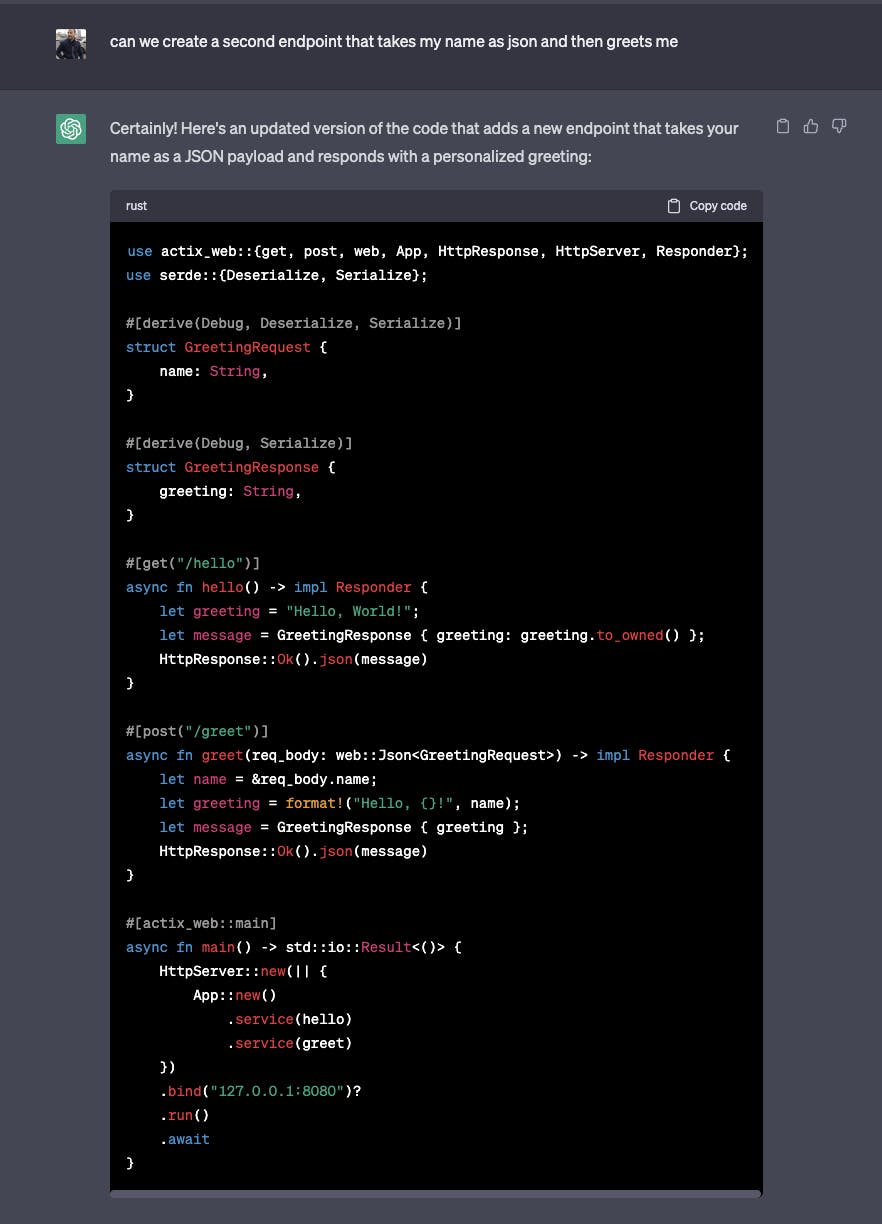
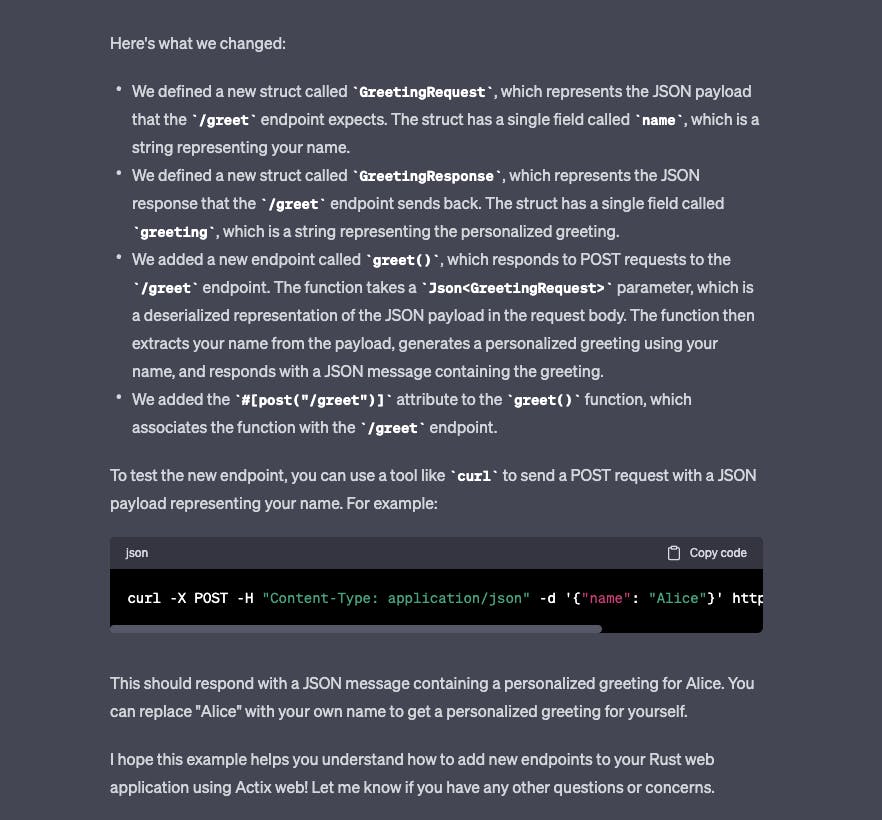
curl -X POST -H "Content-Type: application/json" -d '{"name": "Alice"}' http://localhost:8080/greet
{"greeting":"Hello, Alice!"}%
Everything worked fine so far. It's time to finish the session for today! Let's ask our teacher for some further resource recommendations.
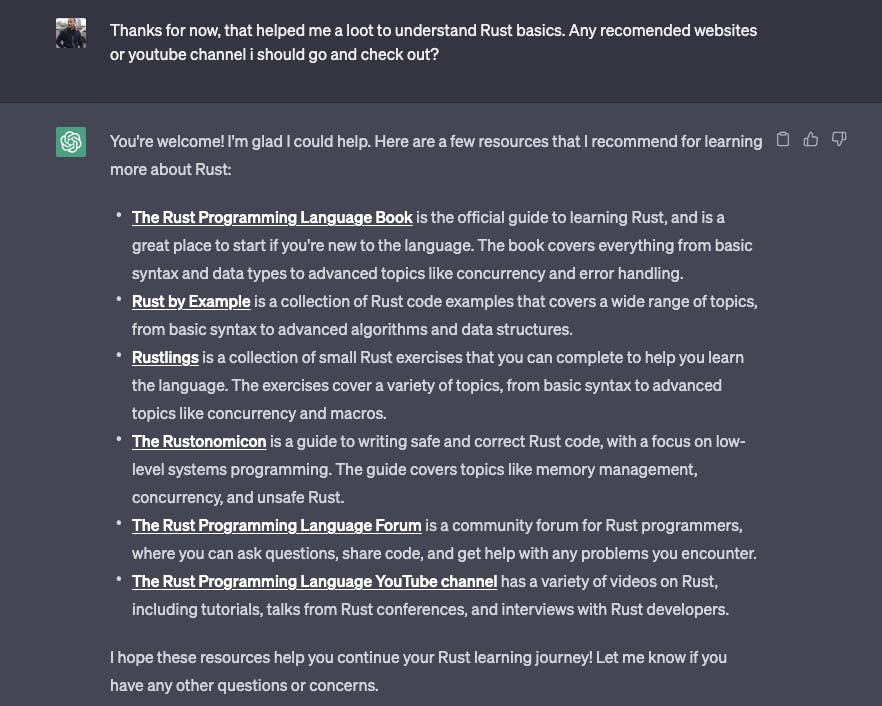
Conclusion
Using ChatGPT to learn Rust can be a helpful tool for getting started with the language. Its ability to generate human-like responses to text inputs can provide a conversational approach to learning that can be engaging and intuitive. However, it is important to keep in mind that ChatGPT is an AI language model and it may generate responses that are incorrect, misleading, or outdated.
Verify the Information
As a learner, it is essential to verify the information provided by ChatGPT by consulting official documentation or reliable sources. While ChatGPT can provide useful insights and guidance, it is not a substitute for learning from reputable sources and practicing programming on your own.
Stay Informed
Additionally, it is important to note that ChatGPT may not always have the most up-to-date information on Rust or its libraries. As Rust is a fast-evolving language with new features and updates being released frequently, it is essential to stay informed on the latest developments and to use current resources when learning the language.
In summary, while ChatGPT can be a useful tool for learning Rust, it is important to approach it with caution and to supplement its responses with official documentation and reliable sources. By doing so, learners can maximize the benefits of ChatGPT while ensuring that they are learning accurate and up-to-date information about Rust.
Disclaimer
All content in this blog was generated by ChatGPT, an AI language model. While the information provided is generally accurate, it may not be 100% correct or up-to-date. Always consult official documentation or seek assistance from the Rust community when in doubt.

